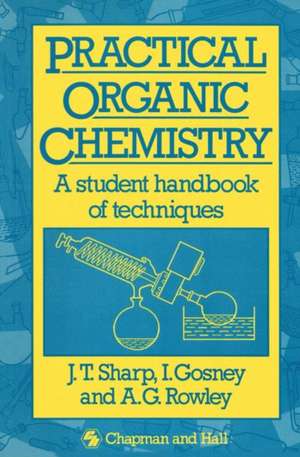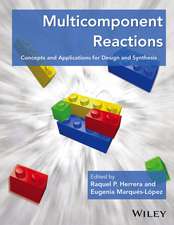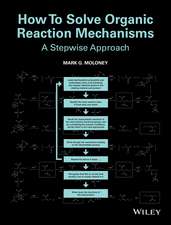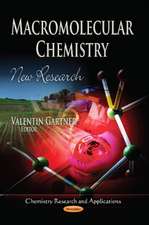Practical Organic Chemistry: A student handbook of techniques
Editat de J.T. Sharpen Limba Engleză Paperback – 26 ian 1989
Preț: 384.90 lei
Nou
Puncte Express: 577
Preț estimativ în valută:
73.65€ • 77.09$ • 61.30£
73.65€ • 77.09$ • 61.30£
Carte tipărită la comandă
Livrare economică 31 martie-14 aprilie
Preluare comenzi: 021 569.72.76
Specificații
ISBN-13: 9780412282300
ISBN-10: 0412282305
Pagini: 200
Ilustrații: XVI, 200 p.
Dimensiuni: 155 x 235 x 13 mm
Greutate: 0.34 kg
Editura: SPRINGER NETHERLANDS
Colecția Springer
Locul publicării:Dordrecht, Netherlands
ISBN-10: 0412282305
Pagini: 200
Ilustrații: XVI, 200 p.
Dimensiuni: 155 x 235 x 13 mm
Greutate: 0.34 kg
Editura: SPRINGER NETHERLANDS
Colecția Springer
Locul publicării:Dordrecht, Netherlands
Public țintă
ResearchCuprins
1 Introduction.- 1.1 The range of experimental techniques.- 1.2 Good laboratory practice.- 1.3 Safety in the laboratory.- 1.4 Keeping records.- 1.5 Samples and spectra.- 2 Carrying out reactions.- 2.1 Basic techniques.- 2.2 Special techniques.- 3 Isolation and purification of reaction products.- 3.1 Primary work-up procedures.- 3.2 Crystallization.- 3.3 Melting point.- 3.4 Distillation.- 4 Separation of organic mixtures by chromatography.- 4.1 Analytical methods.- 4.2 Preparative methods.- 4.3 Appendices.- Preparation of samples for spectroscopy.- 5.1 Infra-red.- 5.2 Nuclear magnetic resonance.- 5.3 Mass spectrometry.- 5.4 Ultraviolet.- Finding chemical information.- 6.1 Physical properties.- 6.2 Spectroscopic properties.- 6.3 Beilstein’s Handbuch.- 6.4 Chemical Abstracts.









